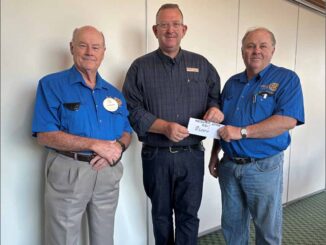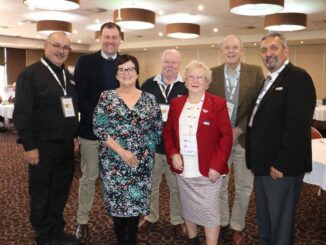
Cancer patients living in Cobar will benefit from a clinical trial to be undertaken by Macquarie University in collaboration with the Oncology Department at Dubbo Hospital, as well as the newly formed Western NSW Clinical Trial Support Unit and NSW Health.
Macquarie University has received a grant of $1.2 million from Australian cancer charity ‘Love Your Sister’ to bring international standard clinical trials to Dubbo.
Professor of Oncology, Howard Gurney, who also runs the Macquarie University Clinical Trials Unit, is leading the Oncology trials for a regional, rural and remote patients collaboration ONTRAC project, which will run over three years.
“People in regional, rural and remote Australia have considerably poorer outcomes with most common cancers than other Australians, and this is especially true for Aboriginal people,” Professor Gurney said.
“Governments have been investing in cancer care centres and telemedicine to better meet needs in rural and regional areas, and this is an important step, but it is taking time to see this translated into improved outcomes for people with cancer in these areas.
“ONTRAC aims to not only bring cutting-edge options for cancer treatment to our most vulnerable populations, but also to establish fully equipped clinical trial units in regional healthcare centres and train local people in clinical trials delivery to staff them.
“By doing this we hope to increase the number of regional, rural, remote and Aboriginal patients taking part in clinical trials, while also minimising the need for them to travel in order to participate,” Professor Gurney said.
The first clinical trial will begin in Dubbo in coming months, with other areas to follow.
Love Your Sister co-founder Samuel Johnson OAM said he was “beyond excited” about the partnership with Macquarie University.
“Underpinning this grant is Love Your Sister’s promise to fund research that improves access to precision medicine for all cancer patients, whatever the cancer, regardless of location, age, income, or status,” Mr Johnson said.
“Collectivity is the answer when equity is the aim and I look forward to encouraging the Australian business sector to join me in becoming part of the solution.”
“I am thrilled to be starting with Dubbo and can’t wait to roll up my sleeves during my extended visit to the region in September,” Mr Johnson said.
The involvement of local Aboriginal communities will be a vital part of the project, with the Djurali Centre for Aboriginal and Torres Strait Islander Research and Education at Macquarie University to lead the codesign process.
Some of the Love Your Sister grant will be used to fund a part-time Aboriginal postdoctoral researcher on the Djurali team.
Bundjalung Elder and Macquarie University Associate Professor of Health Sciences, Uncle Boe Rambaldini, said this project will be an important step forward.
“Cancer is the leading cause of death in Aboriginal people, overtaking cardiovascular disease, and a key barrier is access to the latest treatments and affordability,” he said.
“This project will work with Aboriginal people in a culturally safe way to identify barriers to treatment and create pathways to overcome them.
“When we have inclusion and equity, that’s when we get better outcomes for my people.”
Professor Sakkie Pretorius, Deputy Vice-Chancellor (Research), said it is extremely pleasing to see the ONTRAC project receive such significant support.
“People living in regional, rural and remote locations will benefit tremendously, not only from having access to more clinical trials within their community, but also from the upskilling of the local workforce,” Professor Pretorius said.
“This impactful initiative will help patients stay closer to home and their support network rather than being required to travel long distances to receive the latest treatments.”
The pilot model will also be designed, evaluated and documented so that it can extend beyond this grant, and be used not only by any trial unit within Australia, but also extended to non-cancer indications.
Macquarie University’s Clinical Trials Unit currently runs about 120 trials a year, many of which are first in-human trials run on behalf of pharmaceutical and biomedical companies.


